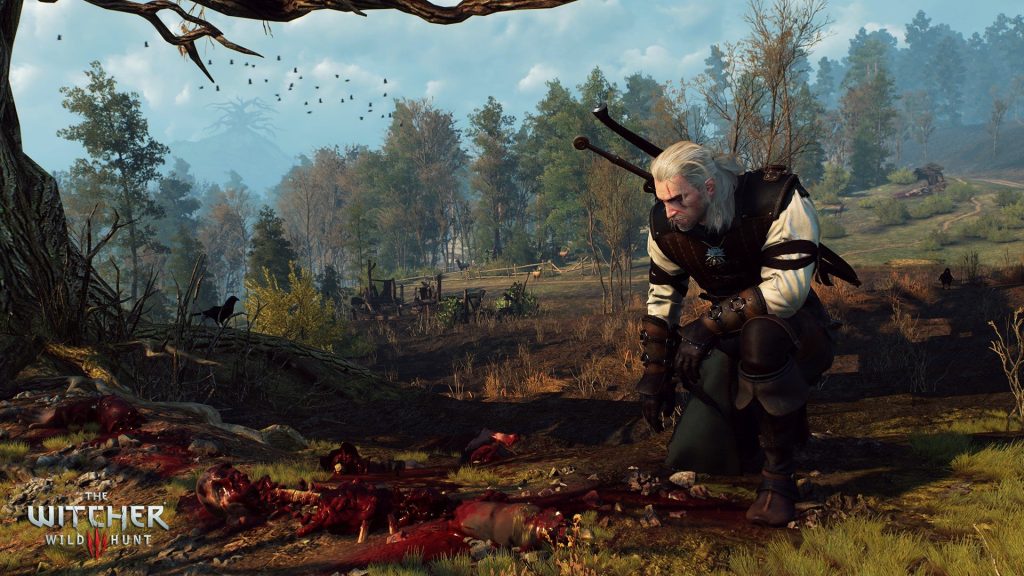Role-playing games have been a staple in the video game industry for decades, offering players the chance to immerse themselves in fantastical worlds, make important decisions, and shape their own stories. The genre has seen many beloved titles over the years, but perhaps none have had quite the impact that The Witcher 3: Wild Hunt has had since its release in 2015.
Developed by CD Projekt Red, The Witcher 3 is the third installment in a series of games based on the popular book series by Polish author Andrzej Sapkowski. The game follows the adventures of Geralt of Rivia, a monster hunter known as a Witcher, as he searches for his missing adopted daughter, Ciri, in a war-torn, fantasy world. What sets The Witcher 3 apart from other RPGs is its rich, immersive world, complex characters, and morally grey choices that have lasting consequences.
One of the most notable impacts that The Witcher 3 has had on the RPG genre is its world-building. The game features a vast open world that is filled with diverse environments, each one teeming with life and detail. From bustling cities to dense forests, players can explore every nook and cranny of the game’s world, uncovering hidden secrets, engaging in side quests, and interacting with a wide cast of characters. The level of detail in The Witcher 3’s world is unmatched, making it one of the most immersive RPGs to date.
In addition to its world-building, The Witcher 3 is also known for its complex and morally grey storytelling. Throughout the game, players are faced with difficult decisions that have far-reaching consequences. There are no clear-cut choices in The Witcher 3, and players must weigh the consequences of their actions carefully. This level of depth and nuance in storytelling has raised the bar for RPGs, encouraging other developers to create more engaging and thought-provoking narratives in their games.
The Witcher 3 also revolutionized the way that quests are structured in RPGs. Rather than relying on traditional fetch quests or generic objectives, The Witcher 3’s quests are often multi-layered and interconnected, with consequences that ripple throughout the game. Each quest feels like a self-contained story, with unique characters, twists, and turns that keep players engaged from start to finish. This approach to quest design has been widely praised by players and critics alike, inspiring other developers to take a more nuanced approach to quest design in their games.
Another aspect of The Witcher 3 that has had a lasting impact on the RPG genre is its character development. Geralt of Rivia is a complex and well-developed protagonist, with his own motivations, flaws, and relationships that evolve over the course of the game. The relationships that Geralt forms with other characters, such as his mentor Vesemir, his love interest Yennefer, and his bard friend Dandelion, are central to the game’s narrative and add depth to the world. This focus on character development has set a new standard for RPGs, with many games now striving to create more relatable and compelling characters for players to interact with.
One of the most significant ways that The Witcher 3 has influenced the RPG genre is through its expansions and downloadable content. The game’s two major expansions, Hearts of Stone and Blood and Wine, are considered by many to be some of the best DLC ever released for a video game. These expansions offer new storylines, quests, characters, and areas to explore, adding hours of additional content to an already massive game. The success of The Witcher 3’s expansions has shown other developers the value of creating high-quality DLC that expands upon the base game and keeps players engaged long after the main story is complete.
The Witcher 3’s impact on the RPG genre can also be seen in its influence on other media. The game’s success has led to a surge in popularity for The Witcher franchise as a whole, with the books, TV series, and upcoming film adaptation all enjoying renewed interest from fans. The success of The Witcher 3 has also inspired other developers to create similar open-world RPGs with rich storytelling and immersive worlds, such as Dragon Age: Inquisition, Horizon Zero Dawn, and Ghost of Tsushima.
Overall, The Witcher 3: Wild Hunt has had a profound impact on the RPG genre, setting a new standard for world-building, storytelling, quest design, character development, and post-launch content. The game’s influence can be seen in the way that other developers approach RPGs, with many now striving to create more immersive and engaging experiences for players. As we look to the future of the genre, it is clear that The Witcher 3’s legacy will continue to shape the RPG genre for years to come.

